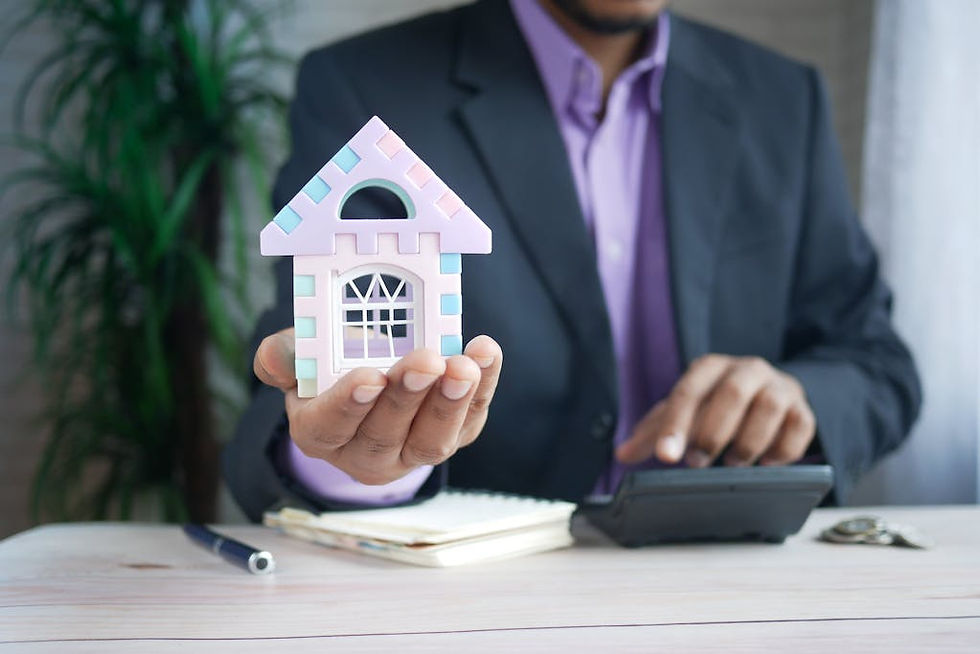What Investors Should Look for in Singapore's Luxury Property Market – Expert Tips by Ang Chee Hian
- Ang Chee Hian
- Aug 12, 2025
- 3 min read
Updated: Nov 21, 2025
There's luxury real estate. And then there's Singapore luxury real estate - a class of its own.
Whether it's a penthouse with skyline views or a landed home in District 10, Singapore's luxury property market is prestigious and precise. Every purchase is strategic. Every decision needs insight. Because in this segment, the wrong move isn't just a missed opportunity- it can mean millions.

1. Not All Primes Are Equal
"Core central" doesn't automatically mean high-performing. Being in a highly sought-after postal code does not automatically mean a property will perform well in terms of capital appreciation.
Look beyond the glamour of Orchard of Holland- and consider the micro-location advantages: how close is the MRT station, scarcity of new developments, view, walkability, and group appeal for tenants. These factors separate trophy homes from strategic investments.
2. Entry Price Matters- Even in Luxury
While many buyers in this space are cash-rich, seasoned investors never ignore entry pricing.
The best opportunities often come through off-market listings, distressed sales, or upcoming launches with room for first-mover advantage. In a tightly regulated market like Singapore, pricing in even a 5–8% gain at entry can translate into significant upside over a few years.
This is especially crucial when interest rates fluctuate or when government cooling measures compress margins. Entry pricing isn't just about today- it shapes your entire exit strategy.
3. Freehold vs Leasehold? It's Not That Simple
Yes, freehold sounds safer. But a leasehold property in a high-demand location (say, Marina Bay or Sentosa) with strong rental yield can outperform a freehold unit in a stagnant area.
It's less about tenure and more about future use, supply control, and rental desirability. Investors with a mid- to long-term view often find leasehold plays that quietly outperform expectations.
4. Developer Track Record Is a Hidden Indicator
This often gets missed- but who builds the property matters.
Top-tier developers bring more than fancy finishes. Their projects command higher resale values, attract stronger rental demand, and often see lower defect rates and better long-term maintenance.
5. Know What Tenants Want (Not Just What You Like)
In luxury segments, rental returns vary wildly depending on layout, design flow, and furnishings.
Foreign tenants in the $10k+/month bracket expect turnkey living. That means functional layouts, quality appliances, built-in storage, and tasteful furnishing- not personal style experiments if the end goal is income, design for your future tenant, not your personal taste.
Layout quirks, wasted corridors, or overly stylized interiors can be deal-breakers for tenants who value efficiency. The luxury tenant pool in Singapore is highly discerning- often made up of expats on fixed-term assignments who want a seamless, comfortable living space without unnecessary frills.
6. Regulatory Changes Are Inevitable- Stay Ahead
From ABSD tweaks to stamp duty rules, Singapore's property market is closely watched and tightly managed.
Smart investors plan their strategy before cooling measures hit. That might mean securing properties under trusts, restructuring ownership, or timing entries around market cycles. The earlier you think about an exit strategy and tax exposure, the better your portfolio holds up.
7. Future-Proofing Is the Real ROI
Where will the growth come from 5–10 years down the line?
Look at zoning plans. Infrastructure upgrades. MRT expansions. Planned mixed-use districts. A luxury unit with upcoming developments nearby- like Greater Southern Waterfront or the Orchard rejuvenation- often outpaces price trends quietly over time.
As the city continues its push toward becoming a global innovation and financial hub, smart investors look at future commercial activity zones- not just residential hotspots.
Smart Luxury is Strategic Luxury
Luxury property in Singapore isn't just a trophy asset- it can be a powerful wealth preservation tool when chosen wisely, whether you're eyeing your first penthouse or diversifying your global portfolio. Having a seasoned expert matters. According to Ang Chee Hian, success in this market comes down to combining emotional intelligence with strategic foresight.
Ready to invest with clarity and confidence? Contact us for a discreet consultation. All the queries are handled with professionalism and care.
FAQs
Is this a good time to invest in luxury property in Singapore?
Yes- with limited new launches and high land costs, supply is tight. Well-selected assets still hold strong long-term value.
Are foreigners allowed to invest in luxury real estate here?
Yes, but landed properties have restrictions. Condos and apartments in most districts are open to foreign buyers.
What kind of yield can I expect from high-end condos?
Typically, 2–3% gross yields, though it varies. Many buyers focus more on capital preservation and appreciation.
How do I find off-market or exclusive deals?
Connect with the agents who specialise in luxury and have access to discreet listings that are not available to the public.
Should I buy in my name or via a trust/company?
It will depend on your long-term strategy. It is important to get advice early and to consider how you will structure it to ensure you do not overpay stamp duties or be exposed to tax.



Comments